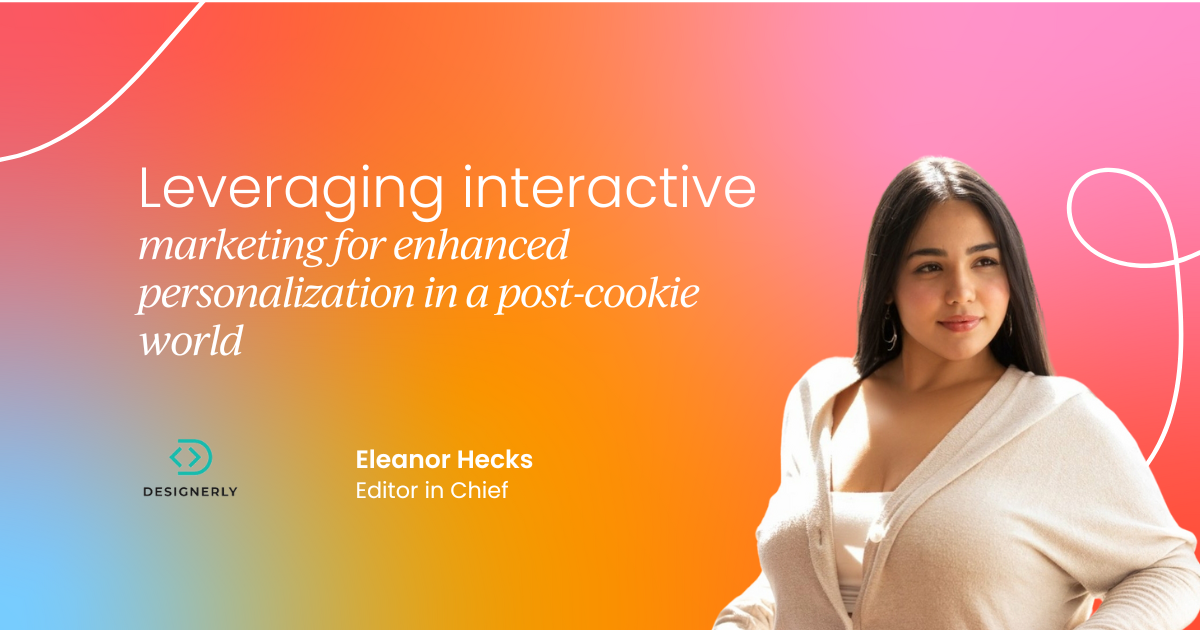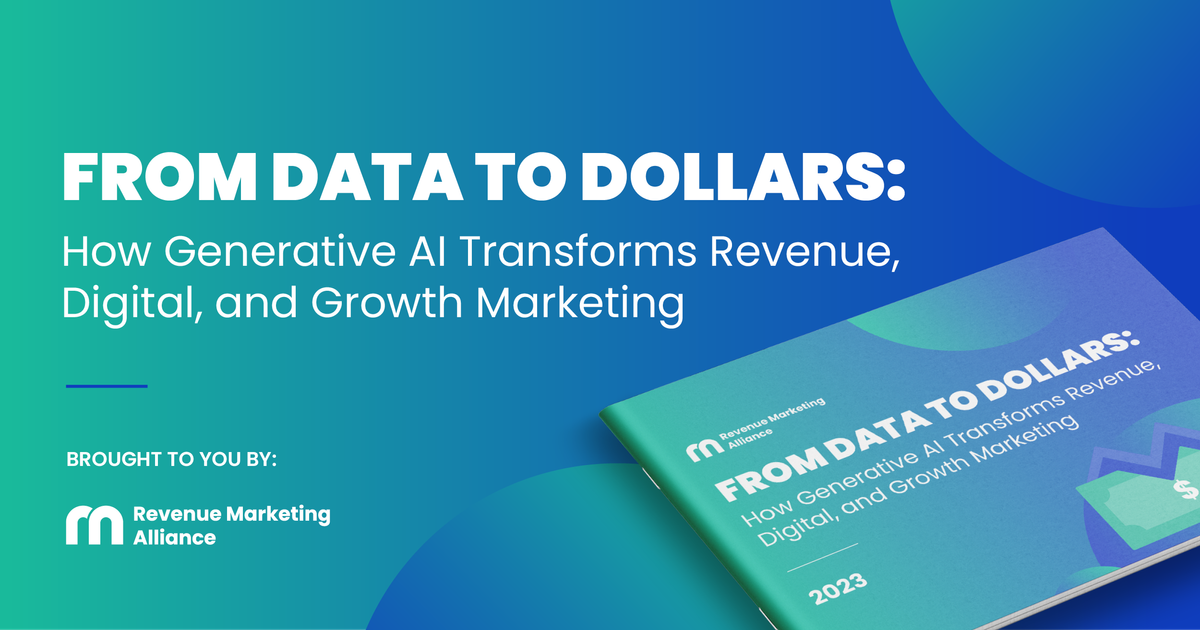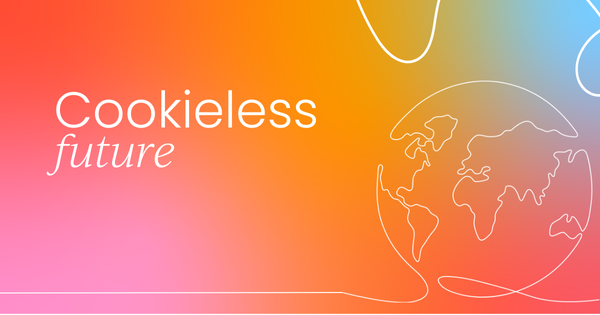What are third-party cookies?
Third-party cookies are small pieces of data placed on a user’s device (computer, mobile, etc.) by a domain other than the one they’re visiting – usually, an advertiser or analytics provider.
These cookies are used to track behavior across websites, help advertisers show relevant ads to users based on their browsing activity, and monitor site performance.
Not everyone uses these types of cookies. The businesses that don’t, need to find alternatives for tracking people and delivering personalized content.
The future of advertising without third-party cookies
Google’s been talking about deprecating third-party cookies for a while now, and they planned to go cookieless later in the year or early 2025. However, they’ve recently made a U-turn that upended many marketers’ plans once again: Google will not remove third-party cookies from its Chrome web browser after all.
It appears this is their final decision.
“Instead of deprecating third-party cookies, we would introduce a new experience in Chrome that lets people make an informed choice that applies across their web browsing, and they’d be able to adjust that choice at any time. We're discussing this new path with regulators, and will engage with the industry as we roll this out.” – Anthony Chavez, VP of Privacy Sandbox
So, if you’re wondering how to prepare for cookieless future, you're not alone. Many brands and businesses are already choosing to move on from third-party cookies.
Businesses are adapting
While Google may have gone back on its plans, despite years of suggesting the removal of third-party cookies, not everyone is bothered by this announcement. In fact, for many businesses, cookieless is still in the cards.
Christine Foster, VP of Product Strategy and Media Operations at 84.51˚, said:
“Nothing changes. Marketers still have an urgent need for more reliable reach and attribution. Third-party cookies were never a good solution for consumers or brands. First-party data remains the most trusted and effective means to reach relevant audiences.”
And according to Adobe, only 49% of marketers rely on data from cookies, compared to 75% in 2022, and “more than half of respondents said that if cookies went away, the change would have little to no impact on their advertising strategies”.
Clearly, many businesses are phasing cookies out to eliminate their reliance on this type of data.
Impact of cookieless future – why are businesses going cookieless?
People are increasingly worried about how their data is being tracked and used across the internet. As these concerns grow, many businesses are taking action to address them. For example, a survey from KPMG found that, in the US:
- Data privacy is a growing concern for 86% of people
- 68% are concerned about the level of data collected by businesses
- 40% don’t trust companies to ethically use their data
- 30% aren’t willing to share their personal data for any reason
Privacy regulations like GDPR (General Data Protection Regulation) and CCPA (California Consumer Privacy Act) require businesses to obtain explicit consent from users to track their data, making it harder for them to use third-party cookies without issues.
Many browsers, such as Mozilla Firefox and Apple Safari actively restrict or block third-party cookies by default.
Businesses are seeing just how important it is to be transparent and respect user privacy, as this leads to trust and stronger relationships with customers.
Google and Safari controversy
As mentioned, Safari blocks third-party cookies by default, stopping sites and advertisers from tracking users without their permission.
However, between 2011 and 2012, Google used a loophole to bypass Safari’s blocking mechanism and employed hidden code to allow them to place third-party cookies on Safari users’ devices.
By exploiting Safari’s default privacy settings, the browser was tricked into allowing cookies as if they were first-party cookies, enabling cross-site tracking.
When they were found out (by researchers at Stanford University), there were legal consequences. The Federal Trade Commission (FTC) fined Google $22.5 million USD for their “workaround”.
This controversy is a prime example of how companies can sometimes skirt privacy safeguards, and highlights the fine line between delivering personalized experiences and respecting people’s privacy.

Cookieless tracking solutions
So, if you’re not interested in using third-party cookies, be it for the reasons mentioned above or because you want to move on from this system, what can you do or use instead?
First-party cookies
Many businesses are opting for first-party data, which is collected directly from users with their consent. For example, you can collect your customers’ information when they interact with your site, be it to sign-up to your newsletter or purchase a product.
This helps assuage privacy concerns, since users are giving their permission, and also gives you more accurate information.
Contextual advertising
This involves displaying ads based on the content of the page customers are viewing, instead of their past browsing behavior.
These ads align with the pages’ topic, therefore, like a fashion magazine displaying fashion-related ads.
So, you don’t have to rely on tracking users and can still deliver relevant content.
Google’s Privacy Sandbox
It’s true that Google gave up on phasing out third-party cookies from Chrome. However, they’ve developed an option that still addresses privacy concerns, called Privacy Sandbox.
The Privacy Sandbox is a set of tools designed to provide targeted advertising while keeping the anonymity of users. In their own words:
“We developed the Privacy Sandbox with the goal of finding innovative solutions that meaningfully improve online privacy while preserving an ad-supported internet that supports a vibrant ecosystem of publishers, connects businesses with customers, and offers all of us free access to a wide range of content.
“Throughout this process, we’ve received feedback from a wide variety of stakeholders, including regulators like the UK’s Competition and Markets Authority (CMA) and Information Commissioner's Office (ICO), publishers, web developers and standards groups, civil society, and participants in the advertising industry. This feedback has helped us craft solutions that aim to support a competitive and thriving marketplace that works for publishers and advertisers, and encourage the adoption of privacy-enhancing technologies.”
So, instead of tracking individual users, browsers could categorize them into interest groups based on their recent browsing activity – advertisers could still target users based on these interests, but individual people would stay anonymous.
This could help to balance targeted advertising with privacy, since it cuts down on the amounts of identifiable data shared.
Server-side tracking
This means collecting and processing user data on the business’ server instead of through client-side cookies. In short, the data is sent to the server to be analyzed and stored via APIs and log files, for instance, rather than having you rely on browser-based cookies.
You have more control over the data and don’t have to worry as much about browser restrictions, since the processing occurs on the server. An example is Facebook’s Conversion API.
Zero-party data
This refers to information that people give voluntarily, such as feedback. Businesses use surveys and quizzes to obtain this information, which is highly valuable because it’s explicitly provided by users.
Not only is transparency and consent taken care of, but you’re also directly aligning with your customers' expectations.
AI approaches
AI-driven models can predict many things, including user behavior and preferences based on anonymous, aggregate data, instead of individual tracking.
Algorithms can analyze large datasets to identify patterns and trends, allowing businesses to still provide personalized experiences and targeted ads, without using more invasive methods.
In short
If you're currently asking yourself, "how to prepare for a cookieless future" and wondering when to phase out third-party cookies, now’s the time. Users’ increasing concerns about privacy and current cookieless tracking solutions allow you to make the shift with little hassle.
And, who knows, with Google offering an alternative to third-party cookies, and their history of going back and forth between eliminating these cookies or continuing, they might one day decide to go the route of Firefox and Safari after all.
AI can help you to make the most of customer data, but what else can it do for you?
Download your free copy of our Generative AI Playbook and learn how to leverage the tool for audience segmentation and personalization, optimize content creation, enhance the customer journey, and so much more.




 Follow us on LinkedIn
Follow us on LinkedIn



